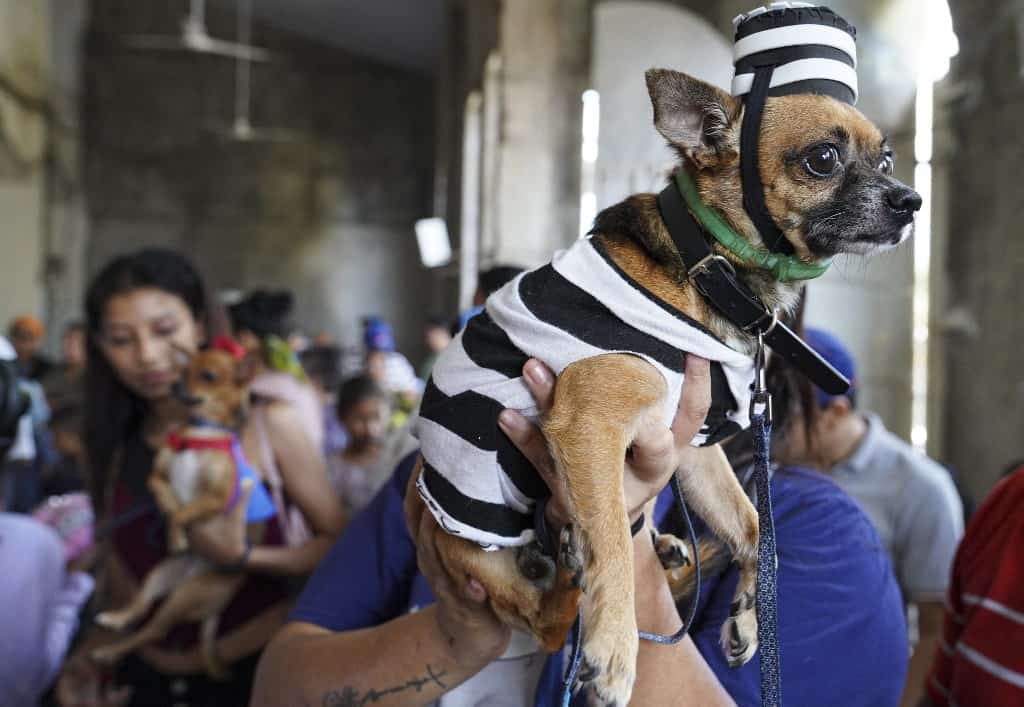Hundreds of dogs dressed as humans were brought by their owners this Sunday to a church in Nicaragua to give thanks to Saint Lazarus, in a Catholic tradition that dates back more than a century.
Dogs of different breeds, colors and sizes were presented before an image of the saint, patron of the poor and sick, on one side of the altar of the Santa María Magdalena church, in the indigenous neighborhood of Monimbó in the city of Masaya, about 30 km southeast of Managua.
The celebration originates from the Gospel parable about the rich man and Lazarus, a beggar who was accompanied by dogs that licked his sores.
Among sniffing and barking, the dogs wait their turn with their owners before the image of the saint, adorned with flowers and surrounded by candles and amid religious chants, to receive his blessing and protection, according to tradition.
Francis Putoy, from the city of Masaya, arrived with his only son and a dog to give thanks to the saint. “A bar fell on the little dog and the child asked Saint Lazarus and they healed him,” Putoy said. “It’s a miracle that Saint Lazarus performed for the little dog,” adds this housewife.
Catholic faithful in Nicaragua ask Saint Lazarus to intercede so that they and their pets may have good health or heal from ailments and diseases. Some dogs wore outfits of athletes, elegant gentlemen, superheroes or fairy tale princesses in the celebration that takes place every year before Holy Week inside the church and in the temple atrium.
“We always come to make the promise for the little dog, Saint Lazarus healed him because he was sick with fluid retention and was dying,” street vendor Rosa García said, with her six-month-old dog Zeus in her arms.
The devotion to this saint has been celebrated in Nicaragua since a cholera epidemic in the 19th century. Since then, many have entrusted themselves to Lazarus to heal their ailments.
“Many people come happy and content to pay a promise” to Saint Lazarus because the saint “has helped their pet to get better” after an illness or an accident, says Father Alberto Mercado of the Santa María church.






